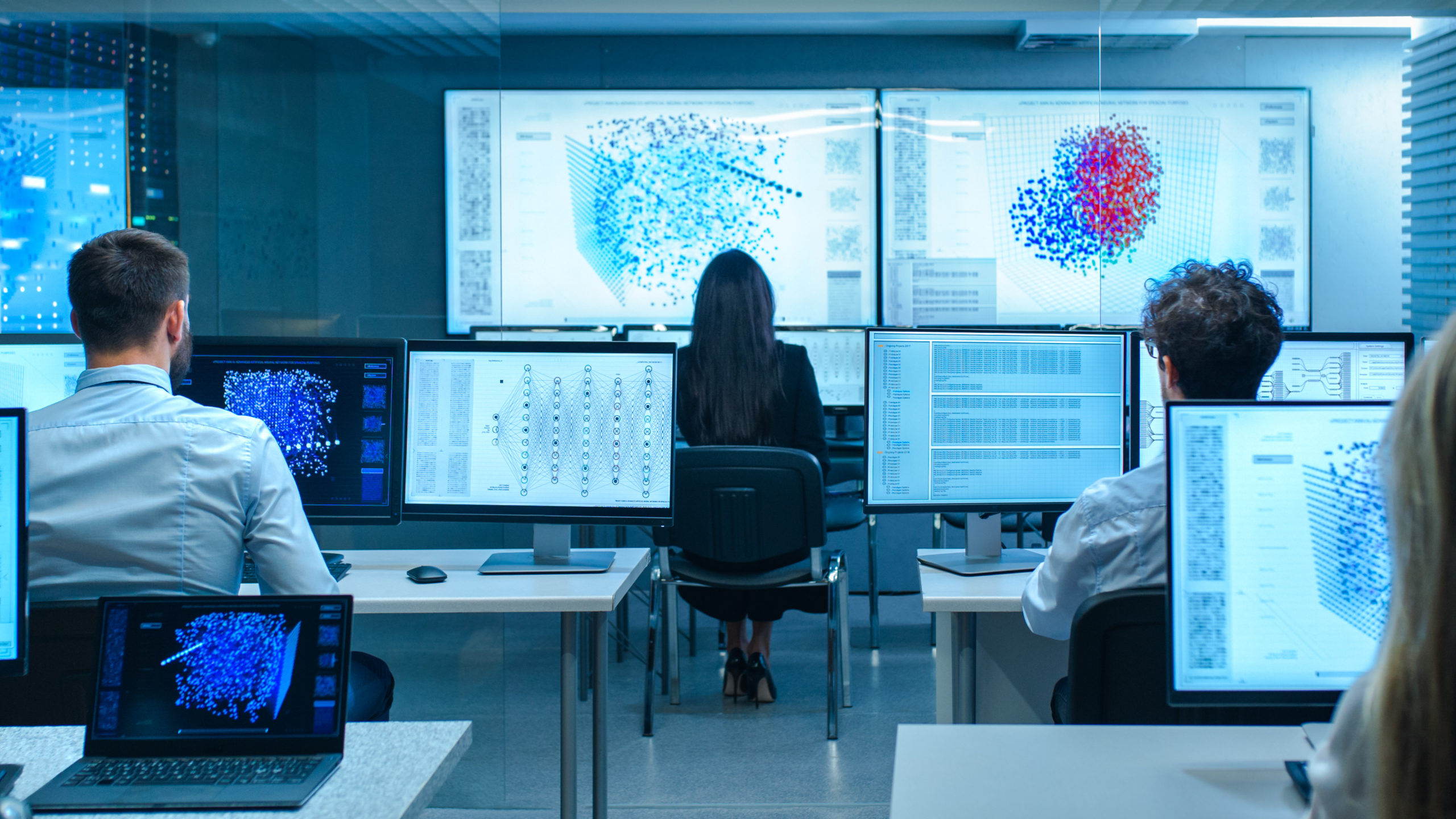

Can I be fired by an algorithm?
Digital systems using artificial intelligence are slowly being implemented, and are the linchpin on which the fourth industrial revolution revolves. Yet these changes are also changing our working lives and raising ethical questions: can algorithm-based monitoring decide whether a company should fire an employee?
Technological dystopias have been a popular genre in science fiction films and literature for many years. In these future scenarios, such as those depicted in Aldous Huxley’s novels or in series such as ‘Black Mirror’, humans are subjected to omnipotent control with the help of artificial intelligence. These dystopias have fuelled all kinds of conspiracy theories, but with the success of teleworking and platforms such as Uber, Glovo and Amazon Flex, they run the risk of ceasing to be fiction and becoming a sad reality of our day-to-day working lives.
Is it the fault of the method or the algorithm?
It is no secret that digital platforms such as Amazon have been using algorithms for years to manage the millions of customers and third-party sellers on their online marketplace. These are computer programmes known as “bots” (informal for robot) that help to prevent commercial fraud, but with which you cannot have a dialogue in the event of a dispute.
Amazon has recently used the same algorithmic management with Amazon Flex, which provides delivery services by using a fleet of freelance drivers using their own vehicles. Yet, according to a Bloomberg investigation, some of these workers have been fired by automated email sent by an algorithm. The algorithm has decided, based on parameters beyond the employee’s control, that their productivity was not sufficient to justify the job.
We found a similar case with Xsolla, a Russian fintech that laid off 147 employees, 30% of its workforce, using an algorithmic evaluation system. This dismissal went viral when the company’s founder explained by email to the workers, and in a bad way on social media, that the artificial intelligence (AI) system had determined that the workers were not engaged and productive enough.
But without resorting to extreme cases, there is no doubt that the monitoring of working time and the massive collection of data by AI systems is a reality. This method is being implemented to cover the lack of human supervision due to teleworking. Many companies already use a myriad of tools and software applications, such as Microsoft Productivity Score, Track People, Hubstaff and Asana to spy on or monitor the productivity of their employees. It is perhaps not the application of monitoring algorithms per se that is the problem, but the way businesses use these tools that should be questioned.
A necessary evil that needs to be regulated
The use and abuse of some of these monitoring devices can lead to the violation of fundamental rights related to workers’ privacy. A fact that has led the European Union to come up with a new regulation, which has not yet been implemented, to minimise the negative repercussions of this rapid increase in the use of robotics and artificial intelligence in our socio-economic and working environment.
Spanish legislation recognises that businesses have the right to adopt the surveillance and control measures they consider most appropriate to check that the employee complies with his or her work obligations and duties, as long as his or her dignity is respected. However, within the Data Protection Law, there is a more specific regulation, related to data protection within digital environments, which states that workers have the right to privacy in the use of digital devices made available to them by the company.
The normalisation of the coexistence of people and artificial intelligence in the workplace has only just begun, and it will be years before the legal, legislative and regulatory uncertainty it creates is resolved. But, above all, it will require an effort of transparency and trust from both sides, workers and companies, to delimit the red lines that should not be crossed.
11Onze is becoming a phenomenon as the first Fintech community in Catalonia. Now, it releases the first version of El Canut, the super app of 11Onze, for Android and Apple. El Canut, the first universal account can be opened in Catalan territory.





Totalment d’acord el monitoritatge es un mal necessari que cal regular. No deuria utilitzar-se per acomiadar, ni per a espiar ni es deuria enmagatzemar per motius mediambentals, recordem q el funcionament de disc dur emeten escalfor al mediambient, l’ús sols deuria activar-se en casos de seguretat amb protocols Ben definits.
👏
Gràcies, Daniela!!!
Crec que com en tots els sistemes basats en software hi ha el treball humà al principi encara que el resultat final sigui el de una maquina. Els humans tenen errors i diferents interpretacions. Sol passar que les necessitats a tractar eren unes, el programador les va interpretar diferent i el resultat final dista de la realitat amb imperfeccions.
És que no hi haurà mai res que sigui del tot perfecte i que agradi a tothom de la mateixa manera… Moltes gràcies pel teu comentari, Pere!!!
L’ús que se’n fa o se’n faci de la intel·ligència artificial és un handicap però cal no oblidar que el primer obstacle és i serà la creació dels programaris que no són ni seran neutrals. Article molt interessant sobre els reptes que arriben
Un temps d’incertesa fins que es pugui ajustar/regular tot plegat. Gràcies Francesc.
M’esgarrifa….
Doncs sí, Laura, és un perill en males mans…
👌
Moltes gràcies, Joan!!!
Fa una mica d’angunia aquest supercontrol de la IA ,perquè esssent aquesta una eina genial el seu mal us pot acabar essent la tirania d’aquest vers el control
Si es fes un bon ús de tot plegat a un altre lloc estaríem… Moltes gràcies pel teu comentari, Alícia!!!
Falta saber quines són les línies vermelles que no s´haurien de creuar. On és límit. Quan tot s´ha de regular vol dir que de moment guanya la màquina.
Ja deu ser així, ja… Moltes gràcies pel teu comentari, Mercè!!!